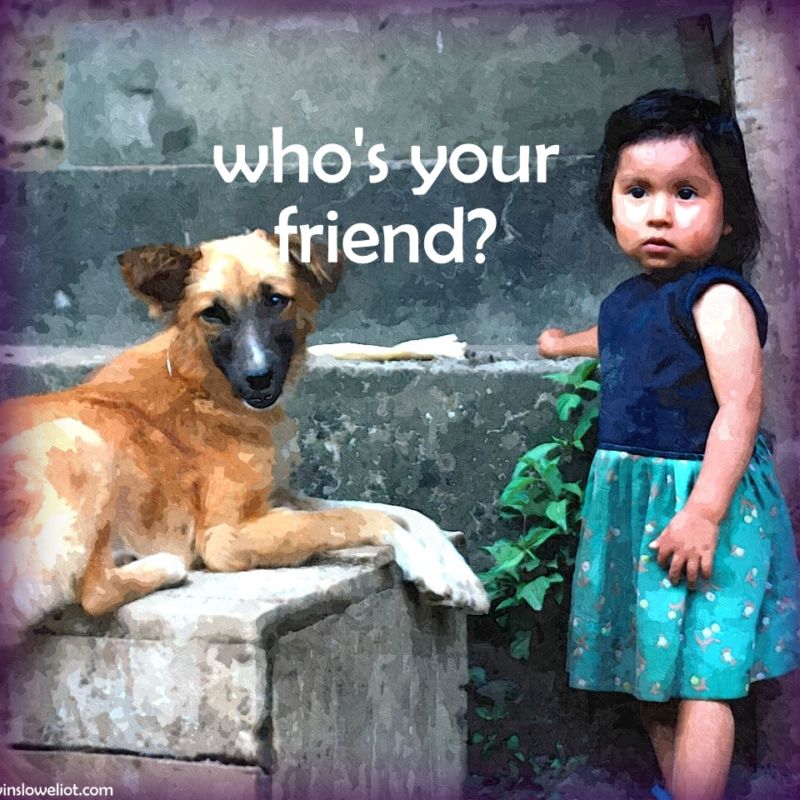
Stillness 12-10: Like most children, when I was young my friends and I used to wonder about our names—where they came from and why we were called what we were. “Winslow,” I learned, was not only a family name from my mother’s side of the family, but originally was a Teutonic word meaning “from the friendly hill.” (“Winthrop,” I also learned, means “from the friendly town.”)
I’ve always felt “friend” was a beautiful word and being friendly was good. People keep telling us to “be kind,” which is good too, but being friendly, whether to an arrogant stranger or to a puppy, takes a different kind of strength. It rays out from our solar plexus rather than from the soft compassion that emanates from our loving hearts, like kindness does. Maybe we’re not always called to be kind. For instance, if someone is mean to us, it can feel draining to be kind. But it’s never draining to be friendly. Friendliness is something that is not diminished by someone else’s rejection of it. What’s funny is we don’t have to be friends to be friendly!
In A Christmas Carol, Scrooge’s nephew returns year after year to wish Scrooge a happy Christmas despite his uncle’s humbug attitude. Scrooge is mystified by his persistence. But his nephew explains to him that it makes him feel better to be friendly. It’s evident that his cheerfulness cheers himself.
We don’t have to know someone well to be friendly. There’s a warmth and good feeling that’s spread through a cheerful hello and a smile. If you’re on a bus, most people are in their own shells of boredom, anxiety, or waiting for their stop to get off. But when a crisis happens—say the bus runs out of gas, for example—our tendency as humans is to become friendly. When someone has a heart attack, the ambulance comes and emergency workers gather around and everyone is friendly (if a bit anxious). If a house is on fire, everyone pitches in. In a crisis there are no strangers.
Do you have imaginary friends? The friends I had when I was young were more real to me than children I met on our trips, who seemed more dream-like. The “real” children came and went, in hotel lobbies or during a grown-up dinner party, but my secret imaginary club members were always with me. There were seven of us, and we called ourselves the Seven Sparklers. We looked a bit like stars (the kind in the sky), and we had many daily tasks to do and missions to accomplish. I was the group’s leader.
The summer I turned ten, we were staying for a few months in Mullaghamore, on the west coast of Ireland. In our little seaside hotel happened to be staying a friendly family that included several children our age. For the first time since we’d left Greece, I had playmates who kept me busy during the day with beachcombing, swimming, boating, and playing games. My Seven Sparklers tried to join in the fun, but it was hard to mix the two worlds. One day, I took them aside and told them I had to say goodbye—at least for a while. They were understanding and faded away for a time.
I suppose it’s not surprising that during our current isolation, they’ve reappeared.
Anyway, the point is, let’s not wait for crisis, loneliness, or wisdom to be friendly. We’ll all feel better.
